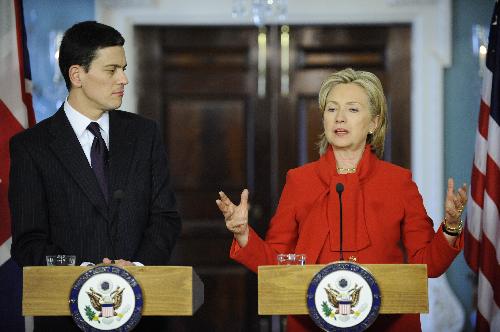US unveils nonmilitary strategy for Afghanistan, Pakistan
US Secretary of State Hillary Clinton on Thursday unveiled a long-term civilian strategy for Afghanistan and Pakistan aimed at bringing stability to the region, placing more emphasis on "realistic progress" over grandiose slogans such as "nation-building."
Clinton said that U.S. civilian engagement in Afghanistan and Pakistan will "endure long after our combat troops come home," and the United States is committed to building lasting partnerships with Afghanistan and Pakistan.
The strategy calls for a drastic increase of civilian experts sent to Afghanistan's central government ministries and provinces. It also brings to the table some new ways to counter the drug trade that has become a major income source for many Afghan farmers, such as developing agriculture and disrupting drug trade networks.
According to the strategy, the U.S. government is also to support Afghan government in its effort to re-integrate Taliban members who renounce al-Qaida and cease violence.
The strategy's suggestions for Pakistan concerns mainly with committing more aid to that countries, both in development assistance and in counterinsurgency support.
Stabilizing Afghanistan and Pakistan is at the top of President Barack Obama's foreign policy agenda. However, both countries are faced with daunting challenges in security front as well as social front.
"We have no illusions about the challenges ahead of us," Clinton said, noting achieving progress requires not only military efforts, but also efforts of U.S. government civilians serving in Afghanistan and Pakistan.
Clinton met with British Foreign Minister David Miliband earlier in the day. The two discussed a major conference on Afghanistan next week in London, which aims to upgrade the "civilian side of the mission."
 0
0 







